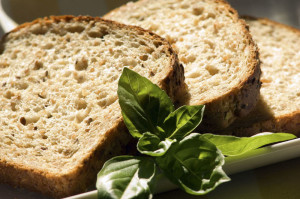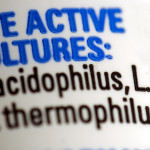 When it comes to eating a healthy diet, the latest buzz has been over the benefits of a gluten free diet plan. This trend has caught on with the public as a fad, but this one has real implications for people who have been diagnosed with celiac disease or other non-celiac gluten intolerance problems. Gluten avoidance may also be the first step toward finding the specific set of foods that trigger your particular chronic symptoms to flare.
When it comes to eating a healthy diet, the latest buzz has been over the benefits of a gluten free diet plan. This trend has caught on with the public as a fad, but this one has real implications for people who have been diagnosed with celiac disease or other non-celiac gluten intolerance problems. Gluten avoidance may also be the first step toward finding the specific set of foods that trigger your particular chronic symptoms to flare.
So, it can make the difference between health and a lifetime of pain and serious illness. Lots of gluten free recipe books can help you get started. You can have delicious wheat free meals with just a few easy steps. You can even find gluten free food online at sites like the Gluten Free Mall.
Celiac Disease
Celiac disease is a lifelong condition. It is believed that certain genes cause this condition to manifest itself in children and adults alike. In the presence of gluten, a protein found in certain grains, an abnormal immune response causes damage to the small intestine. The absorption of vital nutrients, vitamins and minerals occurs here. This process is impeded when the surface area (small projections called villi) are destroyed.
Doctors have several kinds of tests that they can run to known if you have celiac disease per se. These tests include a type of blood test for anti-gluten protein antibodies. Another more invasive test is to do an endoscopy to look at the state of the villi in the small intestine – and even do a biopsy.
Still, some people have other reasons for adverse reactions to wheat or rye or barley. In the end, an elimination diet is the final test of whether or not this approach can help you.
In most cases, when gluten is removed from the body, this immune response does not occur and the small intestine functions as normal. The problem is discovering that gluten is the culprit in the first place. To get support and even more information, the Celiac Disease Foundation is an excellent resource.
Benefits of the Gluten-Free Diet
What is a gluten-free diet? Essentially it is removing all traces of the gluten protein from the body. Gluten is found in wheat, barley, rye and triticale (a cross between wheat and rye). For those of us who are big bread and pasta eaters, this can be the biggest struggle, especially if you are an asymptomatic celiac disease sufferer.
For people who suffer abdominal pain, vomiting, constipation, anemia and other symptoms of celiac disease, the immediate benefit of a gluten-free diet is relief. Removing all gluten will gradually health your system and help stop the symptoms (in most cases).
It may take several months for the intestines to recover from damage depending on how long the disease process was present. But, it will return to normal when further injury is prevented.
A word of caution for celiac disease sufferers: Gluten can hide in plain sight under assumed names on food labels. Become acquainted with the aliases it uses so that you are not reintroducing this dangerous protein into your diet. Two common names are: hydrolyzed vegetable protein and malt.
Be aware that food companies in the US are adding information to their nutrition labels that will tell you if a food that could be gluten free is made in a manufacturing plant where wheat is also processed. This is important for highly sensitive people who must avoid every trace of the offending foods or risk continued gluten-related health problems.
Other benefits include:
- Eating dairy again – Many sufferers are misdiagnosed with having a lactose intolerance. The damage done to the intestines as a result of gluten makes it harder to digest dairy products. Once the intestines have healed, introducing dairy again might be possible.
- Fewer processed foods – Breaded foods might be hiding gluten in the batter. Avoiding anything like this reduces the amount of bad fats and trans fats in your diet. Include traditionally made cakes, pies and cookies in this category.
- Increased energy – For sufferers, lack of proper absorption of nutrients leads to weight loss, vitamin deficiencies and anemia, all of which can sap your energy even if you are eating a healthy diet.
- Reduced inflammation – The inflammatory process can cause skin rashes, joint pain and muscle cramps. Eating foods that don’t contain gluten like berries, olive oil, fatty fishes and green veggies also can reduce inflammation in the body. If you want the whole scoop on diet, supplements, mind-body methods, and holistic therapies to overcome inflammation in the body, check out our complete program here.
Eating a gluten free diet might be a fad for some folks but it can mean a much better quality of life and health to those suffering from celiac disease and other gluten intolerance conditions. Talk to your doctor or nutritionist and see if this might be right for you.






Leave a Reply
You must be logged in to post a comment.